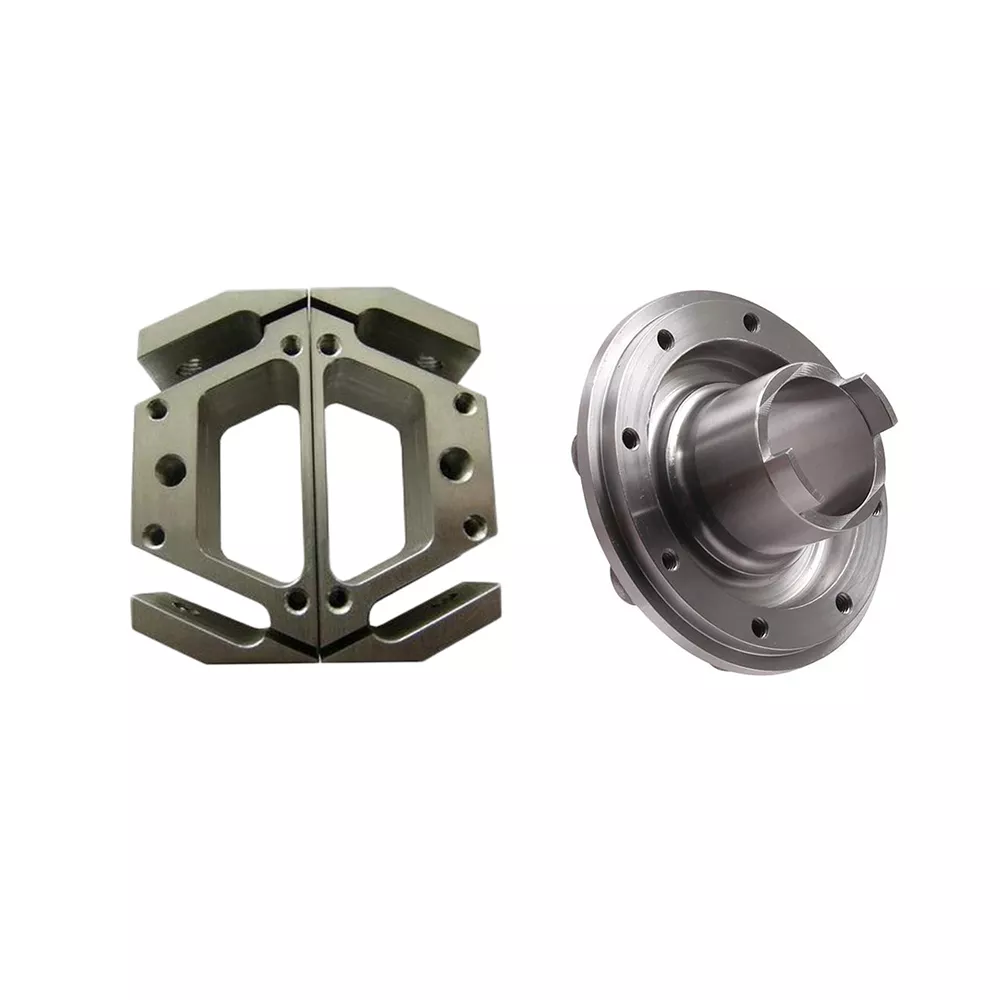15 Things You Didn't Know About Titanium Alloy
 May 09,2024
May 09,2024

Titanium alloy stands out in the material science world due to its exceptional properties and versatile applications. At Tuofa CNC Machining, we often harness the power of titanium alloy in our projects, and we're excited to share some lesser-known facts about this remarkable material. Here are 15 interesting aspects of titanium alloy that you might not be aware of:
The History of Titanium Alloy
Titanium was discovered in 1791 by British clergyman and mineralogist William Gregor in the sands of Cornwall, England. He initially named it "menachanite," after the local parish of Menaccan. Later, in 1795, German chemist Martin Heinrich Klaproth independently rediscovered the element in rutile and named it "titanium" after the Titans of Greek mythology, to symbolize its immense strength. The ability to produce titanium in a usable metallic form was not achieved until the 1930s, following the development of the Kroll process in the 1940s, which enabled its commercial production and widespread use, particularly in high-performance applications like aerospace and biomedical devices.
Titanium Alloy Melting Point
Titanium alloys are known for their high melting point, typically around 1668°C (3034°F). This characteristic makes them ideal for high-temperature applications, such as in aerospace engine components and airframe structures, where materials must withstand extreme heat without losing strength or structural integrity.
|
Metal |
Melting Point (°C) |
Melting Point (°F) |
|
Titanium |
1,668 |
3,034 |
|
Aluminum |
660 |
1,221 |
|
Iron |
1,538 |
2,800 |
|
Copper |
1,085 |
1,985 |
|
Gold |
1,064 |
1,948 |
|
Tungsten |
3,422 |
6,192 |
|
Rhenium |
3,180 |
5,756 |
It’s Superior in Strength
Titanium alloys possess an outstanding strength-to-weight ratio, often three to five times better than that of common structural metals like steel or aluminum. For instance, Ti-6Al-4V, a commonly used titanium alloy, can achieve tensile strengths over 1000 MPa, while maintaining a low density of about 4.5 g/cm³. This combination of lightweight and high strength enables significant performance advantages in aerospace, automotive, and medical sectors, where reducing weight without compromising strength is critical. Such properties make titanium alloys the preferred choice for high-performance applications demanding durability and efficiency.
Density of Titanium Alloys
Titanium alloys typically have a density ranging from about 4.4 to 4.5 g/cm³, which is approximately 56% the density of steel and slightly higher than that of pure titanium. This relatively low density is a key factor in titanium's favorable strength-to-weight ratio, making it ideal for applications requiring both lightness and strength.
Composition of Titanium Alloys
Titanium alloys often include elements like aluminum, vanadium, and molybdenum to enhance their properties. For example, the popular Ti-6Al-4V alloy consists of 6% aluminum and 4% vanadium, which significantly improves its strength, ductility, and resistance to fatigue and corrosion, making it suitable for aerospace, medical, and automotive applications.
|
Element |
Percentage |
|
Titanium |
~90% |
|
Aluminum |
6% |
|
Vanadium |
4% |
Titanium Alloys Sparks White When Being Cut With a Waterjet
When cutting titanium alloys with a waterjet, white sparks are often observed. This phenomenon occurs as tiny titanium particles rapidly oxidize upon exposure to air during cutting. The high-pressure stream, especially when mixed with abrasives, generates enough heat and friction to heat these particles to incandescence, producing visible white sparks. This reaction highlights titanium's reactive nature with oxygen.

Titanium Alloys Doesn’t Occur Naturally
Titanium does not exist freely in its pure state in nature; instead, it is always found bonded with other elements in minerals like ilmenite and rutile. This element is also naturally present in plants, seawater, the human body, and even in space components. Recognized for its silver color, titanium has the highest strength-to-density ratio of any metallic element. To harness its properties for industrial use, titanium must be extracted and alloyed with elements such as aluminum and vanadium, enhancing its strength, corrosion resistance, and heat tolerance for high-performance applications.
It is Naturally Resistant to Corrosion
Titanium alloys are naturally resistant to corrosion primarily due to a stable, protective oxide film that forms on their surface. This film, which is strongly adherent, develops instantly when a fresh titanium surface is exposed to air or moisture. This characteristic makes titanium alloys exceptionally durable in environments prone to corrosion, such as marine settings, chemical processing plants, and biomedical applications where exposure to bodily fluids is common. The oxide layer effectively shields the metal from aggressive agents, ensuring longevity and reliability in its applications.
Disadvantages of Titanium Alloys
Titanium alloys relatively expensive to produce, and their machinability can be challenging. Additionally, they exhibit reactivity at high temperatures, which can complicate their handling and processing. Titanium alloys also have a lower elastic modulus, making them less stiff than some other materials. They are susceptible to contamination, and the range of available alloys is limited. Furthermore, the welding process for titanium alloys is complex, and their strength decreases at elevated temperatures.
Non-toxic and Biocompatible
Titanium alloys are generally considered non-toxic and biocompatible. This property makes them highly valuable for use in medical implants, such as joint replacements and dental implants, where they come into direct contact with the human body. The biocompatibility of titanium alloys arises from their inert nature, which means they do not react or interfere with biological systems. This makes them a preferred choice in many medical and dental applications.
High Scrap Value
Titanium alloys have a relatively high scrap value due to their unique properties and applications. The high scrap value is primarily attributed to the following factors:
Durability
Titanium alloys are known for their exceptional strength, corrosion resistance, and high-temperature tolerance, making them valuable for various industrial applications.
Aerospace and Medical Uses
Titanium alloys are extensively used in the aerospace industry for aircraft and spacecraft components, as well as in the medical field for implants and prosthetic devices, where their biocompatibility and strength are highly valued.
Recycling Process
Titanium alloys can be efficiently recycled, with a well-established recycling infrastructure. This recycling process helps maintain the high scrap value of titanium.
Limited Supply
The global production of titanium is relatively limited compared to the demand, especially in certain industries, which contributes to the high scrap value.
Overall, the combination of titanium's rarity, desirable properties, and widespread industrial applications, along with the efficient recycling processes, results in titanium alloys having a high scrap value, typically around 80 or more per metric ton.
It’s Used for Medical Implants
Some of the key applications of titanium alloys in medical implants include:Orthopedic implants,Dental implants,Cardiovascular implants,Spinal implants,Craniofacial implants.The most commonly used titanium alloys for medical implants include commercially pure titanium (CP Ti), Ti-6Al-4V, and more recently, newer alloys like Ti-6Al-7Nb and Ti-5Al-3Mo-4Zr. The selection of the appropriate titanium alloy for a specific medical implant depends on factors such as the required mechanical properties, the intended use, and the specific regulatory requirements for medical devices.
Only 0.63% of the Earth's Crust Is Titanium
Titanium makes up a mere 0.63% of the Earth's crust, highlighting its rarity in geological terms. Despite its scarcity, this durable metal finds extensive use in various industries due to its exceptional strength-to-weight ratio and resistance to corrosion. Its limited abundance underscores the importance of sustainable practices in its extraction and utilization.
Low Thermal Expansion
Titanium alloys have a low coefficient of thermal expansion, which means they expand and contract less with temperature changes compared to other metals.This unique property allows titanium alloys to maintain dimensional stability under various temperature conditions, ensuring reliable performance in critical environments. The combination of low thermal expansion and high strength makes titanium alloys a preferred choice for components requiring precision and durability.
Surface Treatments
Surface treatments, such as anodizing, can significantly improve the corrosion resistance and durability of titanium alloys. Anodizing involves creating a protective oxide layer on the surface of the titanium, which helps prevent corrosion and wear. This process increases the hardness of the material and can also enhance its aesthetic appearance. By undergoing anodizing or similar surface treatments, titanium alloys can better withstand harsh environments and prolong their service life, making them ideal for various applications in industries such as aerospace, medical, and automotive. Such treatments contribute to the overall performance and longevity of titanium alloys. Our expertise enables us to handle the unique challenges posed by titanium to deliver products that truly stand out (www.tuofa-cncmachining.com).
Conclusion
Titanium alloys have become an indispensable material in modern engineering and manufacturing, providing a unique blend of strength, durability, and versatility that is unmatched by many other metallic materials. As technology continues to evolve, the role of titanium alloys is expected to grow, contributing to advancements across a wide range of industries.More about how Tuofa leads in precision machining of titanium (www.tuofa-cncmachining.com).
 Tel:
Tel:  Email:
Email: 
 Home
Home 15 Things You Didn't Know About Aluminum Alloy
15 Things You Didn't Know About Aluminum Alloy 







